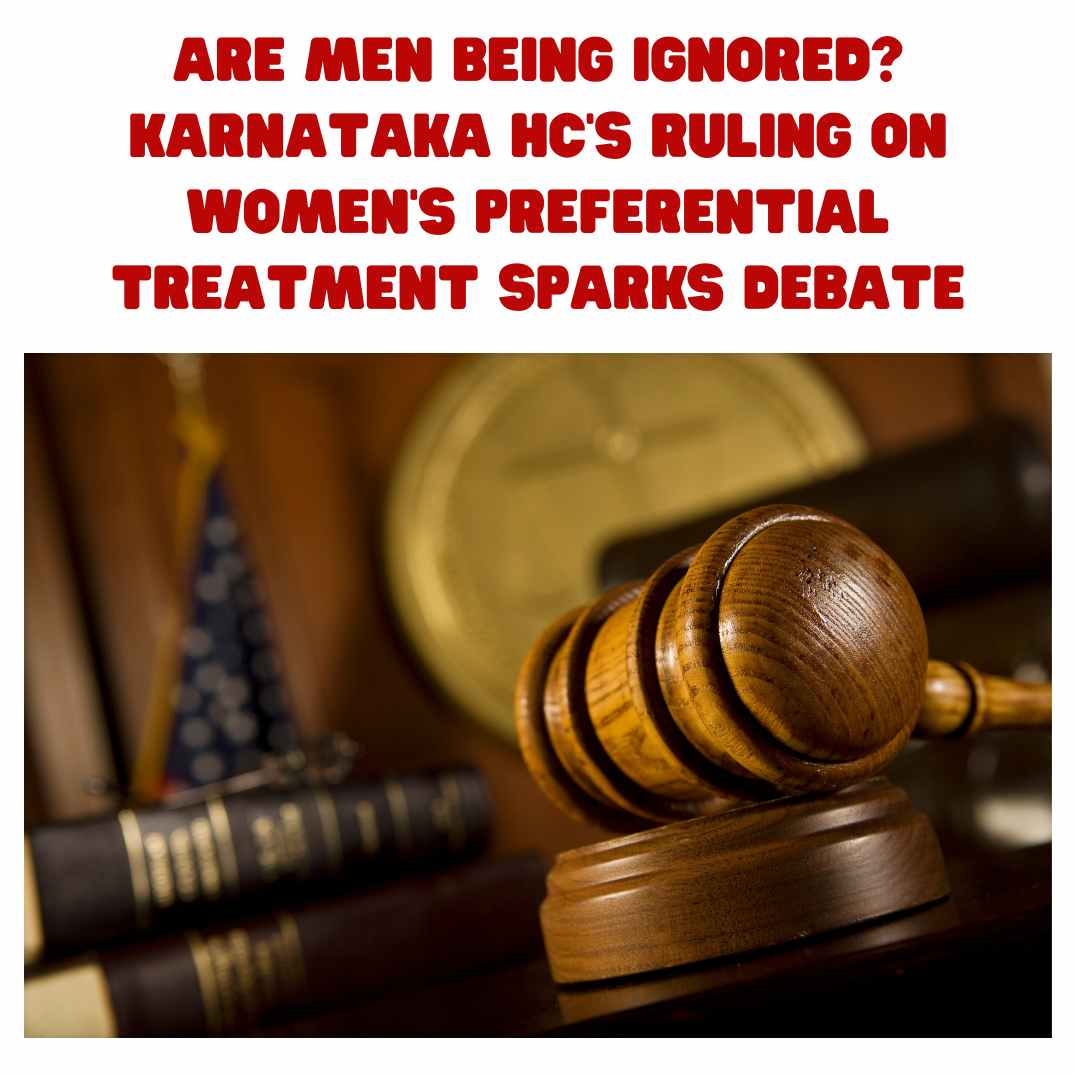Introduction
In a recent judgement, the Karnataka High Court stated that women are the epicenters of family life and thus deserve preferential treatment in bail cases. This has sparked a debate about gender equality in the Indian legal system. The question arises: What about men? Why doesn’t the legal system in India follow gender equality?
The Karnataka High Court Judgement
The Karnataka High Court recently ruled that women should receive preferential treatment in bail cases. The court recognized the central role women play in maintaining the family structure. This decision is rooted in the belief that women, as primary caregivers and homemakers, should be given leniency in legal matters, especially in cases involving bail.
The Role of Women in Families
Women are often seen as the primary caregivers in families. They manage household chores, look after children, and support family members emotionally and physically. This traditional view of women’s roles has influenced legal decisions, such as the Karnataka High Court’s judgement, which aims to protect and support women in these roles.
Preferential Treatment for Women
The idea behind preferential treatment for women in bail cases is to ensure that the family structure is not disrupted. If a woman is granted bail, she can continue to take care of her family and fulfill her responsibilities. This is seen as beneficial for the overall well-being of the family.
What About Men?
While the judgement recognizes the significant role of women, it raises concerns about the treatment of men in the legal system. Men also play crucial roles in families and society. They are often the primary breadwinners and provide emotional and financial support to their families. The legal system should acknowledge and respect the roles of both genders equally.
Gender Equality in the Legal System
Gender equality means treating men and women equally in all aspects of life, including the legal system. However, the Indian legal system often shows a bias towards women in certain cases. For example, laws related to dowry and domestic violence are more favorable to women. While these laws are essential for protecting women, they can sometimes lead to misuse and false accusations against men.
Challenges Faced by Men

Men face their own set of challenges in the legal system. In cases of false accusations, men can suffer severe consequences, including social stigma, financial loss, and emotional distress. The legal system should ensure that men are also protected from such injustices.
The Need for Gender-Neutral Laws
To promote gender equality, there is a need for gender-neutral laws. Laws should be designed to protect the rights and interests of both men and women equally. This includes ensuring that both genders receive fair treatment in bail cases and other legal matters.
Examples of Gender Bias
- Domestic Violence Laws: These laws are primarily designed to protect women. However, men can also be victims of domestic violence, and the law should acknowledge this.
- Dowry Laws: While dowry is a serious issue, false accusations can lead to harassment and legal troubles for innocent men and their families.
- Custody Battles: In child custody cases, women are often favored, even if the father is equally capable of providing a nurturing environment for the child.
Promoting Gender Equality
To achieve gender equality in the legal system, several steps can be taken:
- Awareness Campaigns: Educate the public about the importance of gender equality and the need for gender-neutral laws.
- Legal Reforms: Review and amend existing laws to ensure they are fair to both men and women.
- Training for Judges and Lawyers: Provide training to legal professionals to handle cases without gender bias.
- Support Systems for Men: Establish support systems and legal aid for men who face false accusations or other legal challenges.
Conclusion
The recent judgement by the Karnataka High Court highlights the need to support women in the legal system. However, it also raises important questions about gender equality and the treatment of men. To create a fair and just legal system, it is essential to promote gender-neutral laws and ensure that both men and women receive equal protection and support.
Website Links for Further Information
- National Commission for Women
- National Human Rights Commission
- Ministry of Law and Justice
- Legal Services India
By addressing these issues and working towards a more balanced legal system, we can ensure that justice is served equally to all, regardless of gender.

















What do you think?
It is nice to know your opinion. Leave a comment.